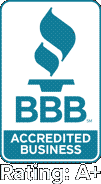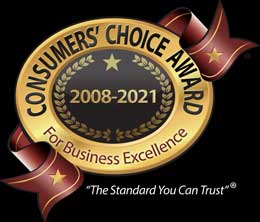Order Air Conditioning Equipment Now to Avoid Shortages, Delays, and Rising Costs
We’re gearing up for another hot Texas summer! Are you? Whether you’re a Texas veteran or experiencing your first summer in Texas, you need to know some critical considerations this year to avoid getting stuck without AC.
Since the Covid-19 pandemic began, the world and economy have shifted. While some things have gotten back to normal, others continue to feel the impact. This summer, the heating and cooling industry faces difficulties that could land you in an AC nightmare. With average temps in the high 90s and some 100+ days, we’re here to help you avoid facing the heat without air conditioning. Our experts have curated some helpful suggestions to safeguard your home and health from the extreme Texas weather.
What’s Affecting the AC Industry this Summer?
Costs are Rising
The economy is taking a hit, and everyone is feeling it. Almost all industries have seen substantial price increases. The heating and cooling industry is no exception. Air conditioning systems are 30% more expensive than last year, with three price hikes already since the beginning of the year and at least two more expected before summer ends. The longer you wait, the more you can expect to pay.
The cost of raw materials has increased substantially, with sheet metal at the top of the list. Additionally, labor shortages in production and the rising cost of gasoline will continue to affect the price consumers can expect to pay throughout the summer. Air conditioning unit prices are not like gas prices, which fluctuate depending on the market. Once the price goes up, it will not go back down, even after the economy stabilizes.
Shortages and Delays
Heating and air conditioning companies around the Dallas-Fort Worth metroplex are experiencing extreme delays and shortages, up to 20 weeks in some cases. Without AC, you will need to find alternative solutions until your system can be repaired or replaced. Proper preparation can help you avoid being without AC for months in the middle of the Texas summer.
Big box stores are facing shortages of portable and window AC units due to the AC industry’s crisis. Higher demand means higher prices, so expect to pay more for a window or portable air conditioning unit this summer. You may be left scrambling, running from store to store, while the parts or a new system are on backorder.
Changing Regulations
Regulations are changing next year. Air conditioning systems are rated according to their energy efficiency. The minimum rating currently required is a 14 SEER (Seasonal Energy Efficiency Ratio) unit. But starting next year, that will change to a 15 SEER unit. Parts to repair a 14 SEER unit will become more expensive as they will not be in production. We have already seen an increase in price for the refrigerant needed in 14 SEER units. If you have a 14 SEER unit nearing the end of its life, consider replacing it before repair and maintenance become a financial burden.
Repair or Replace?
Be Proactive
Texas heat frequently overloads air conditioning systems, causing them to work harder as outdoor temperatures soar. Now is the best time to schedule maintenance for your AC system. A professional HVAC technician will come to your home and evaluate the system’s performance. Weak points that keep the system from functioning optimally can be assessed and help you understand the steps you can take to prolong the life of your AC. Whether you have a newer system or one reaching the end of its life, address issues before they become problematic and interrupt daily life.
This summer, the crisis we are facing in the heating and cooling industry will cause hardships for many homes and businesses across North Texas. Exposure to extreme temperatures can lead to heatstroke or worse. The best thing you can do to protect your family is to get ahead of the game before you are stuck facing the heat. Even if you have never taken steps to safeguard your AC system in years prior, it is vital to do so this year.
Replacing and servicing your air conditioning system early can save you thousands in the long run. When you are proactive, you have time to research the best option for you, your home, and your needs. Once your unit has gone out, you may be left with the most readily available unit or whichever has the shortest delays. This can convert into higher unit costs or sub-par units that don’t meet the needs of your home, based on availability.
When Should I Repair My AC?
Schedule annual maintenance to evaluate your AC system. If an identified problem needs repair, but your unit is still functioning, you are on the winning side of your HVAC crisis. If your unit is just a few years old and meets minimum requirements, replacing it doesn’t make sense. You will have time to order the needed parts and schedule the repair before the unit goes out completely. This is the ideal situation with the delays we have seen this year.
When Should I Replace My AC?
Most AC units last 10-15 years. Prices are going up. It is better to replace your unit sooner rather than later. Manufacturers recently increased prices by 9%, and experts expect to see at least two more price increases before the end of the summer. The earlier you order a replacement system, the more money you will save.
The shortages of AC units have grave implications for North Texas families who wait. If you have had problems with your AC in prior years or suspect your unit is reaching the end of its life, don’t wait to call an experienced HVAC professional.
If cost is an issue, consider alternative options. Many reputable HVAC companies offer financing with 0% interest over a particular term or period. There may also be rebates available for choosing high-efficiency systems that are environmentally friendly. A tax credit may also be available, depending on the unit’s rating.
The Push is on for Energy Efficient AC Systems
Energy efficiency is a priority for governmental boards of regulation. As mentioned earlier, minimum requirements will change in 2023. AC units are rated based on their energy consumption. A 14 SEER system is the lowest rating currently in compliance with regulations, but that will change to 15 SEER units next year.
There are a few things to consider regarding energy efficiency ratings. A higher-rated AC system will have a much higher price tag, but the benefits may not outweigh the cost. Switching from a base-rate unit to a 16-18 SEER unit is adequate in most cases. It will give you considerable savings each year without the unnecessary costs of a more expensive unit.
What are the Benefits of Replacing My Air Conditioning System?
Efficiency
An efficient machine is just that – efficient. New units always function better than older units with worn-out parts and components. An efficient air conditioning system helps maintain a constant and consistent temperature in your home, regardless of how hot it gets outside.
Lower Electric Bill
Once you have determined that a new air conditioning system is needed, you will undoubtedly be upgrading to a more efficient unit. This increase in efficiency translates into lower electricity usage, which saves money on your monthly bill.
It Pays for Itself
Your new air conditioning system will pay for itself over its lifetime. Depending on the age and health of your current system, you could see savings of up to 20% on your monthly electric bill! Keep your home cool and dry affordably.
Humidity Control
Air conditioning units do more than cool your home. They lower the overall humidity, helping to prevent mold and mildew and reducing allergens inside your home. Your air will feel cleaner and cooler with more effective humidity control.
Environmentally Friendly
Go green with a highly rated AC system. Higher-rated air conditioning units optimize energy usage for a cool home throughout the day while reducing the energy needed to run a less efficient system. Manufacturers and energy companies periodically offer rebates for energy-efficient air conditioning systems. Your certified HVAC specialist will be able to help you determine what is available. You may also have access to certain rebates and tax credits as part of an incentive to go green. Consult your CPA to see what options are currently available.
Variable Speed
Variable speed systems are highly energy-efficient and sophisticated. The technology used allows the unit to analyze how the temperature outside affects the temperature inside. When the indoor temperature is affected by a fraction of a degree, the system automatically adjusts the fan speed to accommodate these changes and maintain the desired levels. This effective technology and energy use allows homes to stay cool and comfortable year-round.
More Options
Take control of your AC with more advanced options available on newer units. Advanced technology gives you control over the kind of energy you use and how it is used. Thermostats are programmable to control indoor temperatures. Some systems allow you to see your energy usage and temperature analysis.
Home Investment
If you are considering selling or wish to invest in your forever home, energy-efficient AC units boost your home’s value. A new AC system is an excellent way to ensure consistent heating and cooling while putting your home on the leading edge of technology and efficiency.
What Should I look for in an HVAC Company?
Consumer-Focused Practices
When choosing an HVAC company to service your unit, ask about their business model. If they have a commission-based model, technicians are encouraged to focus on sales. In some cases, this can lead to unethical practices where the consumer is encouraged to purchase a more expensive unit than their needs require. A consumer-centric approach allows technicians to focus on the customer’s needs, providing suggestions that directly impact and improve their current situation.
Detail-Oriented Service
Many companies offer free estimates the first time they visit your home. A qualified and experienced HVAC technician should evaluate your air conditioning system points. As part of their evaluation, they should take time to listen to your concerns, consider your needs and budget, and provide you with a detailed follow-up report. The follow-up report should be informative, list out the options discussed, and give you valuable tools for making the final decision. They should provide a plan of action and timeline for completing repairs and installation, helping you understand what to expect and projected completion dates.
Experienced Technicians
Replacing and repairing your air conditioning system is complicated and involved. Technicians must be highly trained, experienced, and licensed to ensure they can handle the task. Additionally, a qualified technician understands the industry and all its caveats, making suggestions based on their experience and the scope of your needs. All technicians must follow safety procedures and protocols. An inexperienced technician can cost you even more money if they do not use the proper tools, equipment, wiring, and components.
Service and Warranty
What happens after a technician comes out to repair or install a new air conditioning unit? What if something goes wrong? Can you call them out to fix the issue with the repair or installment? Be sure to ask these questions when selecting your HVAC company. Find out the scope and limitations of their recall policy before getting stuck with a company or repair technician that doesn’t offer these services.
Service Packages
Yearly maintenance prolongs the health of your air conditioning unit, ensures function at optimal levels, is proactive against costly repairs, and avoids additional expenses if a unit goes out unexpectedly.
Choose a company that offers service plans to ensure your unit is in good working order and ready for each season without worry. Plans should include annual maintenance and discounted labor rates for needed repairs. You will have peace of mind knowing that your system is in good hands and ready to take on the seasons.
Financing Options
Replacing your air conditioning system can be a financial burden, especially if it catches you off-guard. Look for an HVAC company that offers payments and financing to fit your budget and needs. Financing options give you the advantage of investing in your home and family without breaking the bank. Many companies offer 0% interest for 60 months. And if you decide to pay it off early, check to ensure you won’t incur any penalties or fees.
Texas is not the place to get stuck without air conditioning in the summer. Shortages, delays, and rising costs make focusing on your AC system even more important this year. Take control of your home and health by scheduling a maintenance call today.
For a complete check-up of your system, call our licensed professionals at 214-305-8811 in the HVAC division of Dallas Plumbing & Air Conditioning.






